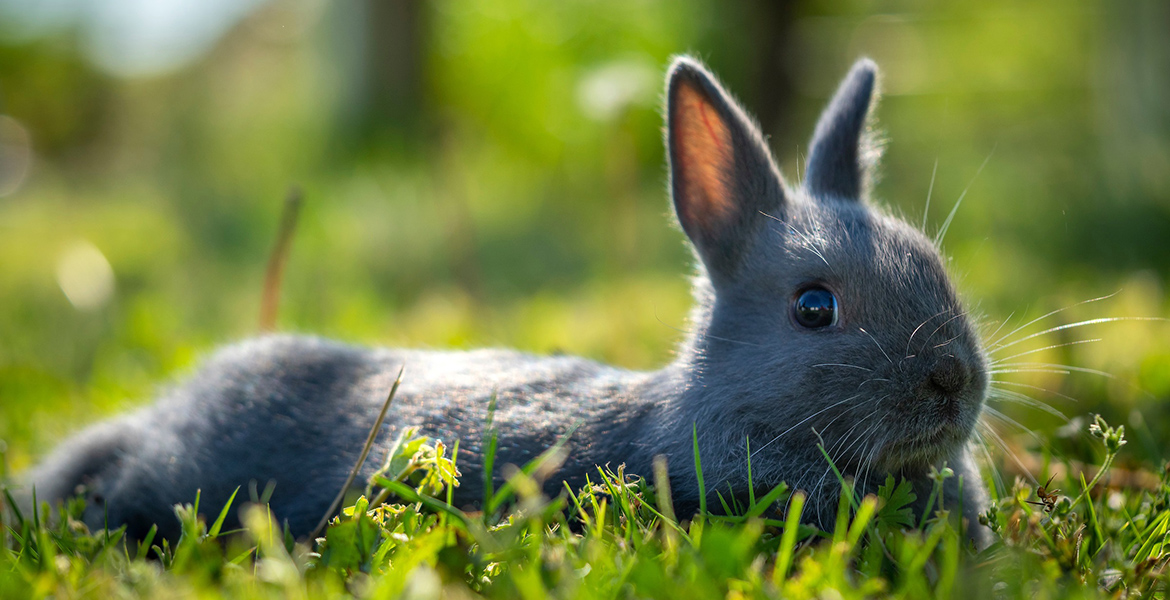
Biosecurity key to preventing spread of rabbit hemorrhagic disease
Monday, June 22, 2020
Rabbit owners should take biosecurity precautions to protect their animals against a highly infectious hemorrhagic disease, Oklahoma State University experts said.
The viral disease has been reported in Texas, New Mexico, Colorado and Arizona. The disease, which has a nearly 100% fatality rate in domestic and wild rabbits, is not transmitted from rabbits to humans.
“Oklahomans who raise domestic rabbits for breeding, meat production or as hobby projects need to be aware of the potential for problems, as do people who volunteer at animal shelters and wildlife rescue facilities,” said Dr. Barry Whitworth, OSU Extension veterinarian and food animal quality and health specialist. “There is a vaccine, but it is not currently available in Oklahoma.”
The virus is spread by contact through body excretions and contaminated carcasses, food and water. People can transmit it indirectly on clothes and shoes.
Like COVID-19, a primary preventive measure is to practice a form of social distancing, preventing contact between groups of rabbits, said Dr. Rosslyn Biggs, OSU Extension veterinarian and director of continuing education for the university’s College of Veterinary Medicine.
“There is not much that can be done to prevent the disease’s spread in wild rabbits, but raising domestic rabbits in environments such as raised cages or secure indoor housing may help to prevent contact and transmission of disease from infected wild animals,” she said.
Information on raising rabbits in general and cottontail rabbits specifically is available online at OSU Extension.
Additional recommended biosecurity practices include:
- Do not allow visitors in a rabbitry or let them handle pet rabbits without protective clothing such as coveralls, shoe covers, hair covering and gloves.
- Always wash hands with warm soapy water before entering and after leaving the rabbit habitat.
- Do not introduce new rabbits from unknown or untrusted sources. Do not add rabbits to a rabbitry from animal shelters or other types of rescue operations.
- If outside rabbits are brought into a facility or home, keep them quarantined away from previously owned rabbits for at least 30 days. Previously owned rabbits who are transported elsewhere also should be quarantined for 30 days before being reintroduced to the rest of the nest.
- Use separate equipment for newly acquired or sick rabbits to avoid spreading disease.
- Sanitize all equipment and cages moved on or off premises before they are returned to the rabbitry. Use a disinfectant with 10% bleach or 10% sodium hydroxide mixed with water.
- Establish a working relationship with a local veterinarian to review biosecurity practices for identification and other site-specific recommendations.
Often, the only signs of the disease are sudden death and bloodstained noses caused by internal bleeding. Infected rabbits also may develop a fever, be hesitant to eat or show respiratory or nervous signs. Contact a local veterinarian immediately if symptoms are observed.
“If you live near or visit an area where rabbit hemorrhagic disease was confirmed, do not touch any dead wild rabbits,” Whitworth said. “If you see multiple dead wild rabbits, report it to state wildlife officials.”
Rabbit hemorrhagic disease is a reportable disease. Veterinarians will make a report to state officials if a case is suspected.
OSU Extension is one of two state agencies administered by the university’s Division of Agricultural Sciences and Natural Resources and is a key part of OSU’s state and federally mandated teaching, research and Extension land-grant mission.
MEDIA CONTACT: Donald Stotts | Agricultural Communications Services | 405-744-4079 | donald.stotts@okstate.edu
